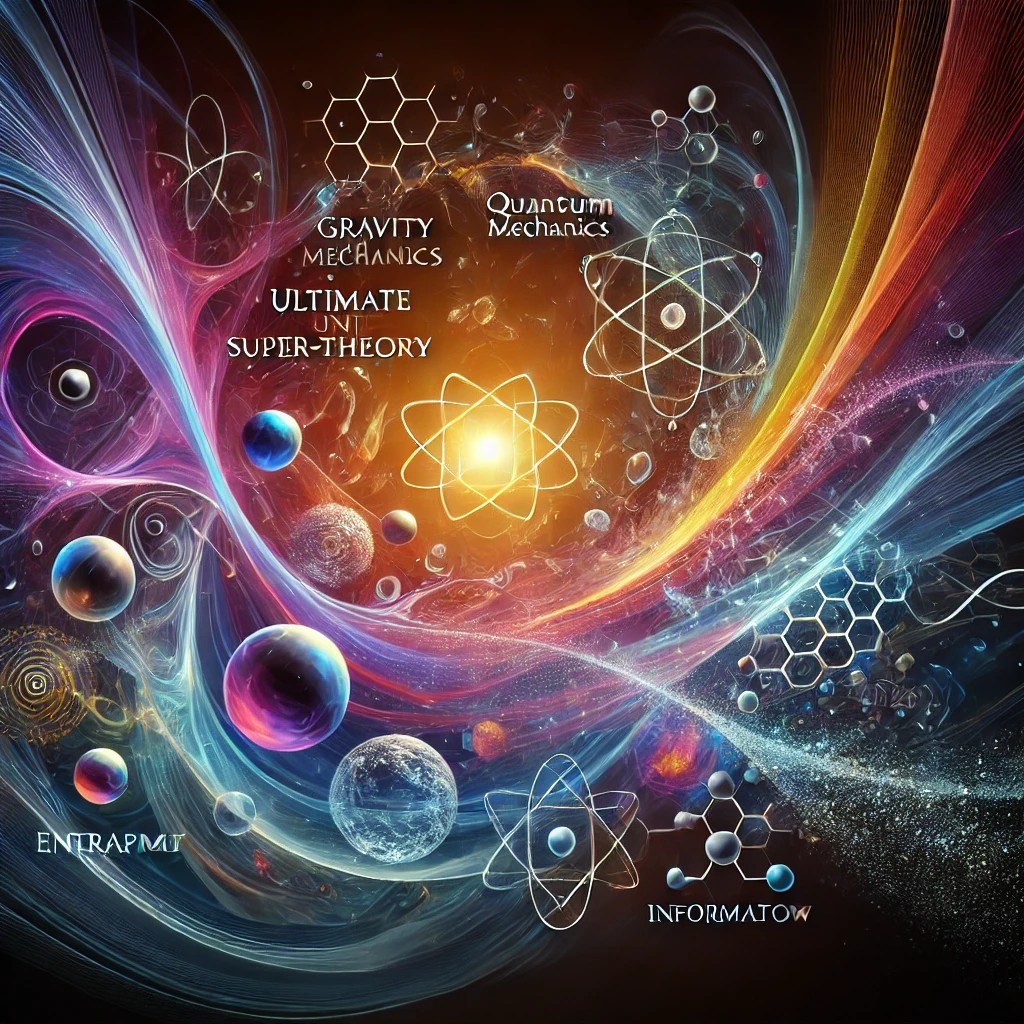J. Philippe Blankert, 6 March 2025
In recent decades, the quest to unify the fundamental forces and phenomena of our universe—gravity, quantum mechanics, thermodynamics, and information theory—has captivated physicists around the globe. Despite significant strides, a single, coherent framework that brings these domains together has remained elusive. Today, a promising new candidate emerges: the Ultimate Unified Super-Theory, or UUST. Invented by J. Philippe Blankert (blankertjp [AT] gmail.com),
UUST stands out by proposing a radically different approach: it treats physics as a self-optimizing system, governed by principles of entropy and information flow. In simpler terms, instead of viewing gravity as a fundamental force, UUST sees it as an emergent consequence of the universe optimizing its informational structure.
At the heart of UUST is the insight that nature naturally favors states of higher entropy or greater informational “efficiency.” Picture the universe as an immense computational system continuously refining its own “code.” Gravity, from this perspective, isn’t a static force but rather a dynamic result of information seeking paths of least resistance.
This groundbreaking idea doesn’t just remain theoretical. UUST offers practical predictions that scientists could test experimentally—such as precise measurements of gravitational lensing effects, subtle changes in gravitational waves detectable by LIGO, and insights into cosmic mysteries like dark matter and the accelerating expansion of the universe.
While detailed formulations and extensive proofs of UUST remain under active peer review and publication consideration, developed by Blankert, its potential implications are profound. A confirmed UUST could unlock unprecedented breakthroughs in quantum computing stability, revolutionary forms of cryptography, and even entirely new methods for harvesting vacuum energy or enabling propulsion in space without conventional fuels.
Stay tuned as we continue to explore this exciting frontier in physics. The future, as UUST suggests, could indeed be entropy-driven—and rich with possibilities.

